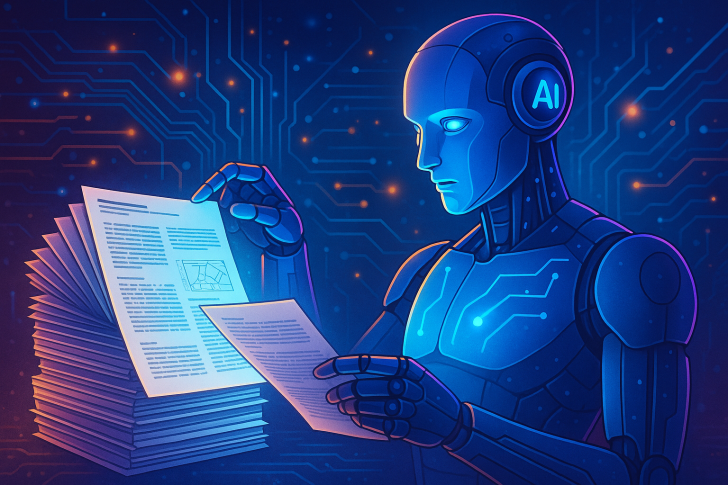⬤ A new AI system called Kosmos is making waves as a breakthrough "AI Scientist" that can handle massive scientific workloads on its own. Kosmos can read thousands of research papers, analyze tens of thousands of lines of code, and produce scientific insights that would normally take human researchers months to complete—sometimes even leading to completely new discoveries. In one biomedical example, Kosmos was tasked with identifying validated protective mechanisms for Type 2 diabetes using annotated multi-omics data, showcasing its potential in real-world research scenarios.

⬤ The system works through structured world models that can reason over millions of tokens, allowing it to synthesize complex scientific domains with remarkable depth. The workflow shows data points flowing into the Kosmos world model, where different colored paths represent multiple discovery streams—including data-analysis agents, literature-review agents, and established findings. On the output end, Kosmos generates detailed, publication-style reports describing specific findings, complete with background, results, and visual figures. This demonstrates how the model transforms raw data and literature into coherent scientific documents.
⬤ The launch is being framed as a major turning point, marking a shift from AI as a passive assistant to AI as an active driver of real scientific progress. There's growing anticipation that 2026 will be a landmark year for scientific discovery and breakthroughs as systems like Kosmos become more prevalent, reflecting rising expectations around advanced AI's role in research.
⬤ Sam Altman weighed in on the development, calling it "exciting" and saying he expects "a lot more things like this." He emphasized that such capabilities will be among the most important impacts of AI, while congratulating the Future House team behind the project. His comments reinforce the view that research-oriented AI systems could become a central use case for advanced models moving forward.
⬤ These developments highlight how AI-driven world models like Kosmos could fundamentally reshape the pace and structure of scientific work. By combining large-scale data analysis, literature synthesis, and automated reasoning into a single pipeline, this class of systems has the potential to materially change how complex research problems are tackled and how future discoveries are generated across scientific fields.
 Saad Ullah
Saad Ullah

 Saad Ullah
Saad Ullah


